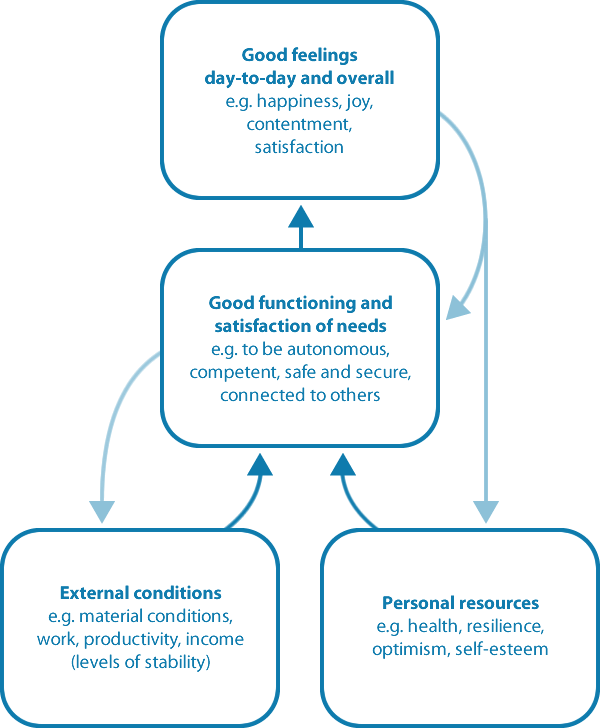Co-producing an outcomes framework
In 2010, Averagetown's council based its adult social care commissioning on outputs - numbers of people or things happening, for example the number of people attending an activity. Following a review, the commissioning process is now focused on outcomes - the meaningful aims and plans that people would like to achieve or need to happen.
In order to choose the outcomes for the area, commissioners brought together all the outcomes from the council's existing plans and put these into a framework. They then worked with over 500 people who use services and their carers to identify which of these outcomes were most important and to decide whether anything was missing. The most important outcomes were then grouped using the 'dynamic model of wellbeing' (pop out explanation - see below) to show how the outcomes would affect people's wellbeing.
During these conversations people also suggested how they wanted service providers to work with them. This became list known as the 'quality characteristics' and included:
- Co-producing services with people who use them.
- Including the support system around the person using the service (their carers, family, friends and wider networks).
- Linking up providers, the local community and the council to make the most of local resources.
- Taking a preventative approach to avoid future problems for people.
The 'outcomes framework' and 'quality characteristics' were then used as the basis of all tendering in the future. People who use services were involved in future commissioning exercises.
The dynamic model of wellbeing
The 'dynamic model of wellbeing' was developed by the New Economics Foundation's Centre for Wellbeing after a big review of the approaches to understanding wellbeing that are used most often. It is a unique model because it brings together two of the main big ideas about wellbeing - the hedonic and the eudemonic theories - into one big idea about subjective wellbeing.[i]
The dynamic model of wellbeing says that subjective wellbeing is made up of both good feelings (the hedonic understanding of wellbeing) and functionings (the eudemonic approach to wellbeing). It shows how our good feelings in fact depend on how well we function in society, which depends mainly on the interaction between our personal resources and external conditions.

[i] Abdallah, S. Michaelson, J. Seaford, C. & Stoll, L. (2011). Measuring our progress: The power of well-being. London: New Economics Foundation
